“Known and Unknown”
Genesis 29:15-28
July 27, 2014, First Presbyterian Church of Jesup
 Our scripture today comes to us not too long after our scripture from last week. Our main character, Jacob deceived his father, Isaac, taking his brother, Esau’s inheritance. His brother vows to kill him and so Jacob runs off to Haran, to the family of his mother, Rebekah. In the scripture we read last week he had a dream where God extended the covenant of Abraham on to him, that is to say he is promised to be the father of many nations. With this promise of God in mind, he continues his journey towards Haran and he comes across a cousin of his, Rachel.
Our scripture today comes to us not too long after our scripture from last week. Our main character, Jacob deceived his father, Isaac, taking his brother, Esau’s inheritance. His brother vows to kill him and so Jacob runs off to Haran, to the family of his mother, Rebekah. In the scripture we read last week he had a dream where God extended the covenant of Abraham on to him, that is to say he is promised to be the father of many nations. With this promise of God in mind, he continues his journey towards Haran and he comes across a cousin of his, Rachel.
 When Jacob was still a bit away from Haran he comes across a group of shepherds, and we read in Genesis 29:7-14 as Jacob days to the shepherds, “‘Look, it is still broad daylight; it is not time for the animals to be gathered together. Water the sheep, and go, pasture them.’ But they said, ‘We cannot until all the flocks are gathered together, and the stone is rolled from the mouth of the well; then we water the sheep.’ While he was still speaking with them, Rachel came with her father’s sheep; for she kept them.
When Jacob was still a bit away from Haran he comes across a group of shepherds, and we read in Genesis 29:7-14 as Jacob days to the shepherds, “‘Look, it is still broad daylight; it is not time for the animals to be gathered together. Water the sheep, and go, pasture them.’ But they said, ‘We cannot until all the flocks are gathered together, and the stone is rolled from the mouth of the well; then we water the sheep.’ While he was still speaking with them, Rachel came with her father’s sheep; for she kept them.  Now when Jacob saw Rachel, the daughter of his mother’s brother Laban, and the sheep of his mother’s brother Laban, Jacob went up and rolled the stone from the well’s mouth, and watered the flock of his mother’s brother Laban. Then Jacob kissed Rachel, and wept aloud.”
Now when Jacob saw Rachel, the daughter of his mother’s brother Laban, and the sheep of his mother’s brother Laban, Jacob went up and rolled the stone from the well’s mouth, and watered the flock of his mother’s brother Laban. Then Jacob kissed Rachel, and wept aloud.”
It’s hard to imagine from our perspective, but in that time many family’s engaged in “intermarriage,” that is they preferred their children to marry their relatives’ children. And so, Rachel would be an ideal wife for Jacob, made even more ideal in their interaction. He wept aloud, presumably overcome by his attraction to Rachel.
 And then we find ourselves at our scripture for today: “Now Laban had two daughters,” the story begins simply enough. Rachel we are told, is graceful and beautiful, more than that she is the one that Jacob was so overwhelmed by on their first interaction.
And then we find ourselves at our scripture for today: “Now Laban had two daughters,” the story begins simply enough. Rachel we are told, is graceful and beautiful, more than that she is the one that Jacob was so overwhelmed by on their first interaction.
 Then we are told there’s something strange about Leah’s eyes. In the Hebrew they’re described by the word rahke, but there’s much disagreement about what this word means. Depending on the translator it is translated as, “ tender,[1]” “weak,[2]” “lovely,[3]” “delicate,[4]” or “nice[5].” Whatever it is about her, she is placed as the inferior of the two sisters, though she is older.
Then we are told there’s something strange about Leah’s eyes. In the Hebrew they’re described by the word rahke, but there’s much disagreement about what this word means. Depending on the translator it is translated as, “ tender,[1]” “weak,[2]” “lovely,[3]” “delicate,[4]” or “nice[5].” Whatever it is about her, she is placed as the inferior of the two sisters, though she is older.
 Their father Laban strikes a deal with Jacob, he will work the land for seven years in exchange for Rachel’s hand in marriage. Then we hear the lovely phrase, “so Jacob served seven years for Rachel, and they seemed to him but a few days because of the love he had for her.”[6]
Their father Laban strikes a deal with Jacob, he will work the land for seven years in exchange for Rachel’s hand in marriage. Then we hear the lovely phrase, “so Jacob served seven years for Rachel, and they seemed to him but a few days because of the love he had for her.”[6]
You can ask David about how quickly the last nine months have passed as we’ve been preparing for our wedding.
 Then there is a wedding, but when Jacob wakes up, we read in the scripture, “When morning came, it was Leah!” In the Hebrew there’s the exclamation hinneh! in the middle of this sentence. It holds the meaning “behold!” or “lo!” but it in a modern translation it might carry the same meaning as throwing an explicative in the middle of this sentence. It is certainly a statement of surprise, and not a welcome one.
Then there is a wedding, but when Jacob wakes up, we read in the scripture, “When morning came, it was Leah!” In the Hebrew there’s the exclamation hinneh! in the middle of this sentence. It holds the meaning “behold!” or “lo!” but it in a modern translation it might carry the same meaning as throwing an explicative in the middle of this sentence. It is certainly a statement of surprise, and not a welcome one.
And so, in a karmatic turn of events, Jacob who had deceived his father in the darkness of his father’s blindness, is deceived by Laban in the darkness of the night. Jacob then goes back to work for another seven years so that he may indeed marry Rachel, his beloved.
 It is not lost on me that this passage on marriage comes in the lectionary less than a week before David and I are to be married. Over the past weeks and months we’ve heard well wishes for our wedding day, and cautions about how hectic of a week and day it will be. While I understand that all of these thoughts come from experience, I might recommend a reading of this section of Genesis to any apprehensive wedding couples, firm in the knowledge that any logistical slip ups of the day pale in comparison to the chaos of this story.
It is not lost on me that this passage on marriage comes in the lectionary less than a week before David and I are to be married. Over the past weeks and months we’ve heard well wishes for our wedding day, and cautions about how hectic of a week and day it will be. While I understand that all of these thoughts come from experience, I might recommend a reading of this section of Genesis to any apprehensive wedding couples, firm in the knowledge that any logistical slip ups of the day pale in comparison to the chaos of this story.
There are so many questions in this strange tale of two deceptions, two weddings, and two wives, and things don’t become particularly smooth for Jacob and his family following this story. One of the questions that stood out for me the most in my reading of the text this time around, was how Jacob could possibly not be aware that it was Leah he was marrying and not Rachel.
 Biblical scholars offer all sorts of suggestions, the heaviness of the veil, the heaviness of the alcohol consumption at the wedding festivities, but even with all of those things in mind it’s really hard to imagine how Jacob could be so mistaken. We are told there is something strange about Leah’s eyes, but in reality it seems that Jacob’s eyes are the ones that are unfocused.
Biblical scholars offer all sorts of suggestions, the heaviness of the veil, the heaviness of the alcohol consumption at the wedding festivities, but even with all of those things in mind it’s really hard to imagine how Jacob could be so mistaken. We are told there is something strange about Leah’s eyes, but in reality it seems that Jacob’s eyes are the ones that are unfocused.
Though I will be wearing a veil at our wedding, it will certainly not be nearly as dense as that of Leah’s, not leaving any room for a mistaken identity at the altar. And though I am the younger of two sisters, I am also sure my sister and her fiancé would have something to say about any last minute changes in the bridal party, particularly in terms of the bride or groom.
 So what can we learn from this strange story? What does a mistaken identity thousands of years ago have to do with us? While hopefully we do not have family members who would seek to manipulate our love in such treacherous ways, there are deceptions in which we willingly engage as we approach those we love. We’ve heard the adage, “love is blind,” and if we don’t seek to clear our eyes long enough to truly know the person whom we love, we are stuck in this blindness, which can be helpful in some situations, but debilitating in others.
So what can we learn from this strange story? What does a mistaken identity thousands of years ago have to do with us? While hopefully we do not have family members who would seek to manipulate our love in such treacherous ways, there are deceptions in which we willingly engage as we approach those we love. We’ve heard the adage, “love is blind,” and if we don’t seek to clear our eyes long enough to truly know the person whom we love, we are stuck in this blindness, which can be helpful in some situations, but debilitating in others.
 When I was at the Festival of Homiletics, the preaching festival held in Minneapolis this past May, I heard Princeton seminary professor, Craig Barnes speak about this strange story of Leah and Rachel, Jacob’s love and Laban’s deception. In a sermon on the same topic Craig Barnes writes, “Whoever it is that you love, that person is both Leah and Rachel. You may love one more than the other, but they are wrapped into the same person. Rachel is the one you love, and you’re sure that she will be the blessing to your life. But you can’t have Rachel without taking Leah, who you don’t love and you didn’t think you were getting. Not long after you are together, you discover you didn’t get just Rachel. You’re also very involved with Leah, and you can work for years trying to turn her into Rachel.”[7]
When I was at the Festival of Homiletics, the preaching festival held in Minneapolis this past May, I heard Princeton seminary professor, Craig Barnes speak about this strange story of Leah and Rachel, Jacob’s love and Laban’s deception. In a sermon on the same topic Craig Barnes writes, “Whoever it is that you love, that person is both Leah and Rachel. You may love one more than the other, but they are wrapped into the same person. Rachel is the one you love, and you’re sure that she will be the blessing to your life. But you can’t have Rachel without taking Leah, who you don’t love and you didn’t think you were getting. Not long after you are together, you discover you didn’t get just Rachel. You’re also very involved with Leah, and you can work for years trying to turn her into Rachel.”[7]
 There is always both known and unknown going into any relationship. What is known can be idealized, what is unknown can be troubling, but we will have to come to terms with both if we want that relationship to flourish. It’s easy enough to put this same equation in play with nearly any relationship in your life: the parts of your job that you love and the parts you tolerate; the experiences with your family that bring you deep joy and the issues that you deal with; and even the parts of your experiences with Christianity that excite you and the parts that seem frustratingly unattainable.
There is always both known and unknown going into any relationship. What is known can be idealized, what is unknown can be troubling, but we will have to come to terms with both if we want that relationship to flourish. It’s easy enough to put this same equation in play with nearly any relationship in your life: the parts of your job that you love and the parts you tolerate; the experiences with your family that bring you deep joy and the issues that you deal with; and even the parts of your experiences with Christianity that excite you and the parts that seem frustratingly unattainable.
 Perhaps there are places in our lives where we experience the reverse, ways that we feel we were held up to such high expectations that disappointing the other was inevitable. It’s hard when you feel like someone has failed you, but it can be even harder to feel like you yourself are that failure.
Perhaps there are places in our lives where we experience the reverse, ways that we feel we were held up to such high expectations that disappointing the other was inevitable. It’s hard when you feel like someone has failed you, but it can be even harder to feel like you yourself are that failure.
 While scripture never tells us how Leah feels about any of this, I can’t imagine she appreciated her life, passion, and capacity for love being set aside so that her father could get fourteen years of work out of her cousin. I can imagine Leah in a Brady Bunch-esque way saying, “Rachel, Rachel, Rachel!” Having the strangeness of your eyes held up as your primary identifying characteristic is humiliating, yes, but being offered in marriage in the place of your sister is horrifying. And with Jacob expecting Rachel, beautiful and gracious Rachel, Leah was forced into the role of being the disappointment.
While scripture never tells us how Leah feels about any of this, I can’t imagine she appreciated her life, passion, and capacity for love being set aside so that her father could get fourteen years of work out of her cousin. I can imagine Leah in a Brady Bunch-esque way saying, “Rachel, Rachel, Rachel!” Having the strangeness of your eyes held up as your primary identifying characteristic is humiliating, yes, but being offered in marriage in the place of your sister is horrifying. And with Jacob expecting Rachel, beautiful and gracious Rachel, Leah was forced into the role of being the disappointment.
How do we go forward from this place of unattainable expectations, this place of disappointment? How do we redeem our relationships? When given the choice of how we view the flaws in our selves and in each other we can choose grace.
There is a difference between the words weak and lovely, even though they point to the very same eyes. With so many ways to translate our perceptions of each other, might we choose the most gracious?
 This is after all, what God chose. Given our track record of sin and deception from the start of humanity, it seems the sensible thing would be for God to write us off as the human being we are, but God loves us in and beyond our flaws. As if loving us into creation wasn’t enough, God loved us enough to redeem us from our sin and deception through the death of his own son, Jesus Christ. Through Christ every flaw, every imperfection is made perfect.
This is after all, what God chose. Given our track record of sin and deception from the start of humanity, it seems the sensible thing would be for God to write us off as the human being we are, but God loves us in and beyond our flaws. As if loving us into creation wasn’t enough, God loved us enough to redeem us from our sin and deception through the death of his own son, Jesus Christ. Through Christ every flaw, every imperfection is made perfect.
God loves us not because we’re blameless, but because God deems us worthy of love and worthy of redemption. When we are given the same choice in how we view one another and especially ourselves, may we forever choose grace. Amen.
[1] BHS-W4
[2] NIV, ESVS
[3] NRSV
[4] NKJV
[5] The Message
[6] Genesis 29:20
[7] http://day1.org/1105-the_problem_with_two_spouses























 I love home makeover shows. I love seeing the before and after, I love seeing how things come together, but my favorite part? The moment the family finds out that they are getting a home makeover.
I love home makeover shows. I love seeing the before and after, I love seeing how things come together, but my favorite part? The moment the family finds out that they are getting a home makeover.















































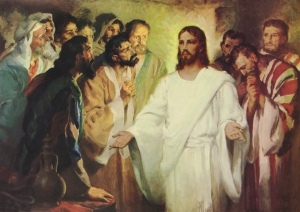








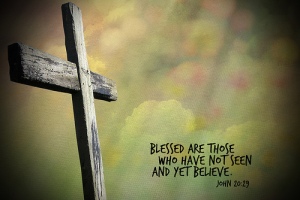














































































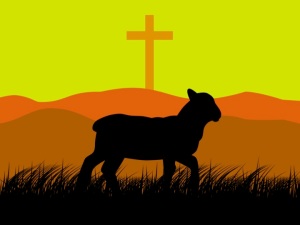







































































































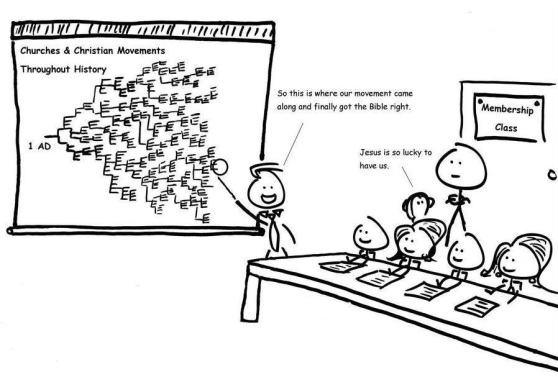
















































































































 Have you ever read the Bible and felt like this? Like you’re being pointed in all sorts of directions and you’re not sure where to go? Or maybe you felt that it might mean something for your life, but your not sure which? And when you read more about scripture it you might hear even more of a confusing message?
Have you ever read the Bible and felt like this? Like you’re being pointed in all sorts of directions and you’re not sure where to go? Or maybe you felt that it might mean something for your life, but your not sure which? And when you read more about scripture it you might hear even more of a confusing message?









































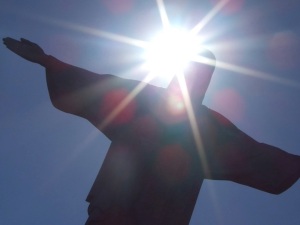

 There’s a story that was in the news a week or so ago about a New York policeman who offered boots to a man who was elderly, barefoot, and homeless. The policeman, officer Larry DePrimos, bought the shoes with his own money and helped to place the socks and shoes on this man’s feet. A tourist captured it in a photograph and posted it online. The picture went viral and was seen by more than 400,000 people. When questioned about it, the policeman said that he knew he had to help and so he did.
There’s a story that was in the news a week or so ago about a New York policeman who offered boots to a man who was elderly, barefoot, and homeless. The policeman, officer Larry DePrimos, bought the shoes with his own money and helped to place the socks and shoes on this man’s feet. A tourist captured it in a photograph and posted it online. The picture went viral and was seen by more than 400,000 people. When questioned about it, the policeman said that he knew he had to help and so he did. Arnold Cohen, President of the Partnership for the Homeless in New York City says, “We should be asking why there are so many people on the streets. And why a rich city… is so ill equipped to deal with the complexity of homelessness — because it is very complex.”
Arnold Cohen, President of the Partnership for the Homeless in New York City says, “We should be asking why there are so many people on the streets. And why a rich city… is so ill equipped to deal with the complexity of homelessness — because it is very complex.” This was the time of the Roman Empire. There was oppression, persecution, and financial disparity. Many were illiterate and disenfranchised. All except those at the very top were vulnerable socially and economically. It was indeed a time of complexity, when good deeds could be confused and charity could be seen as gullibility. This was not a simple world.
This was the time of the Roman Empire. There was oppression, persecution, and financial disparity. Many were illiterate and disenfranchised. All except those at the very top were vulnerable socially and economically. It was indeed a time of complexity, when good deeds could be confused and charity could be seen as gullibility. This was not a simple world. Both the photographer and the officer described the homeless man’s reaction as lighting up like it was Christmas morning. They delighted in this man’s delight. The moment was deemed worthy of capturing, worthy of doing. But when the story changes, is the feeling still the same? Is the action still reasonable? I believe in my heart of hearts, that “no act of love is ever wasted,”
Both the photographer and the officer described the homeless man’s reaction as lighting up like it was Christmas morning. They delighted in this man’s delight. The moment was deemed worthy of capturing, worthy of doing. But when the story changes, is the feeling still the same? Is the action still reasonable? I believe in my heart of hearts, that “no act of love is ever wasted,” We affirm in scripture and in our creeds as a Church that Jesus Christ, God’s own self, came to this earth and in the most extreme act of love, lived a sinless life, yet died for our sins. We were not and are not worthy of such a gift. There is nothing we can even do to fully earn such an enormous love. But that’s the beauty of grace, it’s a free gift of love, of forgiveness, of redemption.
We affirm in scripture and in our creeds as a Church that Jesus Christ, God’s own self, came to this earth and in the most extreme act of love, lived a sinless life, yet died for our sins. We were not and are not worthy of such a gift. There is nothing we can even do to fully earn such an enormous love. But that’s the beauty of grace, it’s a free gift of love, of forgiveness, of redemption. We are standing at the Advent of God’s presence in the world once again: A birth of One, fully God and fully human, inaugurated at Christmastime. We are also standing at the Advent of the possibility of God’s Kingdom lived out here on earth: God’s love through our love, God’s care through our care. God promised never to leave us or forsake us. God forever desires to be in relationship with us. God is always, God-with-us, Emmanuel. May we remember that promise this Advent season and every day. Amen.
We are standing at the Advent of God’s presence in the world once again: A birth of One, fully God and fully human, inaugurated at Christmastime. We are also standing at the Advent of the possibility of God’s Kingdom lived out here on earth: God’s love through our love, God’s care through our care. God promised never to leave us or forsake us. God forever desires to be in relationship with us. God is always, God-with-us, Emmanuel. May we remember that promise this Advent season and every day. Amen. There’s this book I have called, “Journeys of Simplicity: Traveling Light.” In it are accounts and inventories of many well-known individuals, some historic, some contemporary, including: Thomas Merton, Gandhi, Annie Dillard, Henry David Thoreau. Each account acknowledges a simple collection of possessions.
There’s this book I have called, “Journeys of Simplicity: Traveling Light.” In it are accounts and inventories of many well-known individuals, some historic, some contemporary, including: Thomas Merton, Gandhi, Annie Dillard, Henry David Thoreau. Each account acknowledges a simple collection of possessions. Thomas Merton had a broken rosary and a wooden icon of the Madonna and child. Gandhi had three porcelain monkeys and spittoon. Annie Dillard had bird skeletons and whalebones. Henry David Thoreau had a jug of molasses.
Thomas Merton had a broken rosary and a wooden icon of the Madonna and child. Gandhi had three porcelain monkeys and spittoon. Annie Dillard had bird skeletons and whalebones. Henry David Thoreau had a jug of molasses.


 Henry David Thoreau is writer known for his poetry, but is equally as famous for the way that he went and lived out in the woods as a recluse and a hermit. Thoreau once wrote,
Henry David Thoreau is writer known for his poetry, but is equally as famous for the way that he went and lived out in the woods as a recluse and a hermit. Thoreau once wrote, As a young child I remember trying to fall asleep on Christmas Eve, electric with the excitement that tomorrow would bring and specifically thinking, “tomorrow something could happen that would change my life.” I wasn’t delusional enough to imagine that I would be receiving a pony or a car or my own mansion or anything else extravagant, but I remember the distinct hope that Christmas offered: the chance that something new would enter my life that would make things a little bit more fun, or a little bit easier, or in the very least, something that would make me a little bit more fashionable.
As a young child I remember trying to fall asleep on Christmas Eve, electric with the excitement that tomorrow would bring and specifically thinking, “tomorrow something could happen that would change my life.” I wasn’t delusional enough to imagine that I would be receiving a pony or a car or my own mansion or anything else extravagant, but I remember the distinct hope that Christmas offered: the chance that something new would enter my life that would make things a little bit more fun, or a little bit easier, or in the very least, something that would make me a little bit more fashionable. Throughout the Biblical accounts, prophets speak with excited hope about the coming Messiah: In our Old Testament passage we hear the promise that justice, righteousness, and salvation is coming. In our New Testament passage we hear that when the Lord comes “every valley shall be filled, and every mountain and hill shall be made low, and the crooked shall be made straight, and the rough ways made smooth; and all flesh shall see the salvation of God.”
Throughout the Biblical accounts, prophets speak with excited hope about the coming Messiah: In our Old Testament passage we hear the promise that justice, righteousness, and salvation is coming. In our New Testament passage we hear that when the Lord comes “every valley shall be filled, and every mountain and hill shall be made low, and the crooked shall be made straight, and the rough ways made smooth; and all flesh shall see the salvation of God.”































































